On 17 October Olof Sundin presented at Digital history research seminar at Stockholm University. His talk was based on his work on the history of information search, juxtaposing contemporary products such as Google and OpenAI’s ChatGPT with the media historical context provided by Umberto Eco’s famous novel “The Name of the Rose.”
He raises the question: What do monasteries and Silicon Valley’s tech giants have in common? For this purpose he investigates the material properties that constitute the information infrastructure for searching and acquiring knowledge, ranging from libraries, bookshelves, and card catalogs to online information systems and today’s tech corporations. Sundin emphasizes how access to information and the mechanisms for controlling it are shaped by society’s dominant knowledge infrastructure and our collective imaginings of this infrastructure and its future. In this context, the increasing politicization of knowledge infrastructures and the dominance of certain sociotechnical imaginaries indicate developments that could potentially have profound implications for our understanding of the value and control of knowledge, as well as its role in the public sphere.
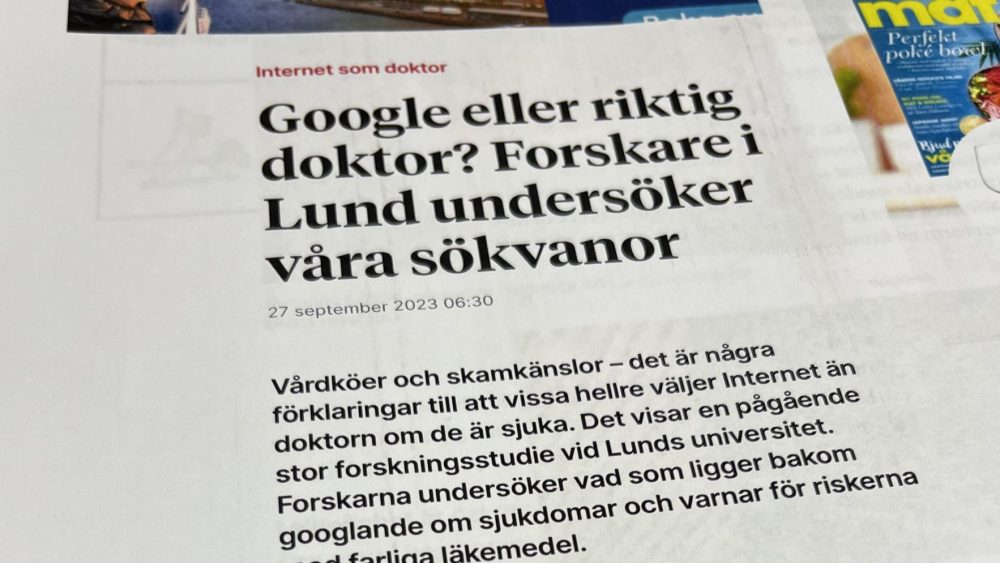
In a news article published by Sydsvenska, Susanne Lundin, Rui Liu, together with colleague Margareta Troein were interviewed to talk about the phenomenon of people googling one’s health problems. Increased health literacy among care seekers is necessary, but on the other hand, all information available on the internet is not reliable. It therefore is important to understand how and why people are willing to trust health information on the Internet.
Infrastructural Meaning-Making and Why We Need It
Olof Sundin co-authored an online publication (on 21st Sept.) at Information Matters, on the subject of infrastructural meaning-making. Information Matters is a digital-only communication forum for information science, sponsored by the Association for Information Science & Technology. In their publication, Olof and colleague argue that not only is it becoming increasingly difficult to distinguish fact from opinion, but also to understand why certain content ends up in our feeds, recommendations or search results in the first place. Yet it’s more important than ever to understand it. This is where infrastructural meaning-making comes into play, and it’s something that the datafied society needs to understand.
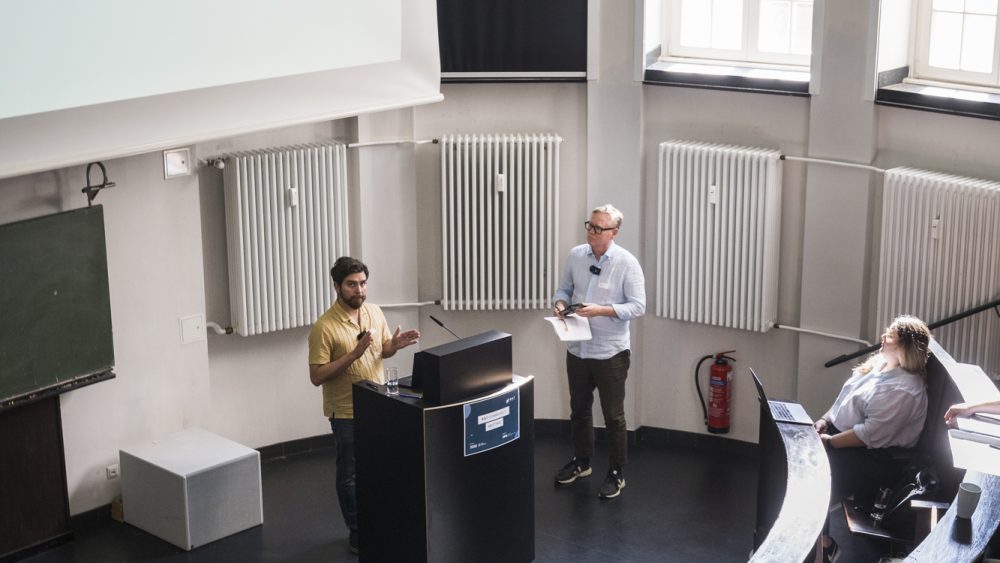
On 7 September, the “RAT Community Meeting on the Use of Search Engine Data in Research” took place in Hamburg. The conference was organised by Professor Dirk Lewandowski and the Search Studies research group at the Hamburg University of Applied Sciences. Olof Sundin and Kristofer Söderström presented ongoing research entitled “Greyzone Medicines and Black Hat SEO”, based on data collected with RAT.
Ethnology, Part II: In Close Contact with Thoughts and Things

Following the first part of a blog at Medical Humanities, Susanne Lundin in another medical humanities blog (published on 8 August, 2023) continues discussing on the role of ethnology in understanding human society. In this blog, the discussion is centered on research methods and research reflexivity.
Ethnologists often apply patchwork methods in data collection. That is, research material is usually gathered from different sources. It can be through conventional qualitative methods such as in-depth interviews and field observations; it can also be more quantitive-oriented methods such as questionnaires and surveys. It can also be through methods beyond verbal exchange such as drawings.
Ethnologists consider people as both the carriers and builders of culture. Hence, researchers’ own lived experiences as heavily influenced by particular cultural and social systems also provide important insights to interpret the collected material. In this way, the above-described ethnological patchwork method requires constant research reflexivity.
How Swedish Residents Navigate Global Medical Markets
While over-reliance on medicines in care provision and self-care has been widely and critically discussed in and beyond academia, less attention has been paid to how care seekers navigate the medical supply side of healthcare as well as the moral choices they face when examining their options. In a Medical Humanities blog (published May 30, 2023), Emma, Rui and Susanne present preliminary findings from sub-study 1 within the project, drawing on interviews they have conducted in the spring 2023.
Ethnology: In Close Contact with Thoughts and Things

In a Medical Humanities blog (published on May 23rd, 2023), Susanne Lundin shows how ethnology as a humanistic discipline can contribute to understanding cultural impacts of medical research.
Susanne writes: “For ethnologists, everyday life becomes a keyhole into how cultural norms are activated in people’s lives, allowing us to see what is considered normal and thus obvious and invisible. Ethnology’s insights reveal the unspoken rules that determine daily routines in homes or workplaces; or, in a medical humanities context, how the digital delivery of medical care creates particular behavioural patterns. For instance, today’s patients have become more like customers. Ethnology examines how such phenomena are rooted in complex historical and cultural patterns”.
The blog is the first section of a 2-part series and discusses the questions ethnologists ask to address medical issues. The second section will be focused on how ethnologists address those questions reflexively.

Rui Liu did a 2-week research visit to Stellenbosch University in May 2023, funded by Erasmus. During her visit, she held workshops with postgraduate students and faculty researchers at Desmond Tutu TB Centre (DTTC), an interdisciplinary research centre on Tuberculosis and HIV treatments. Subjects were about qualitative research methods and research ethics. She also presented her doctoral dissertation to the health economics research group at Department of Economics, Stellenbosch University. Additionally, she followed colleagues from DTTC to field visits in public hospitals and pharmacies in townships and discussed future research ideas.
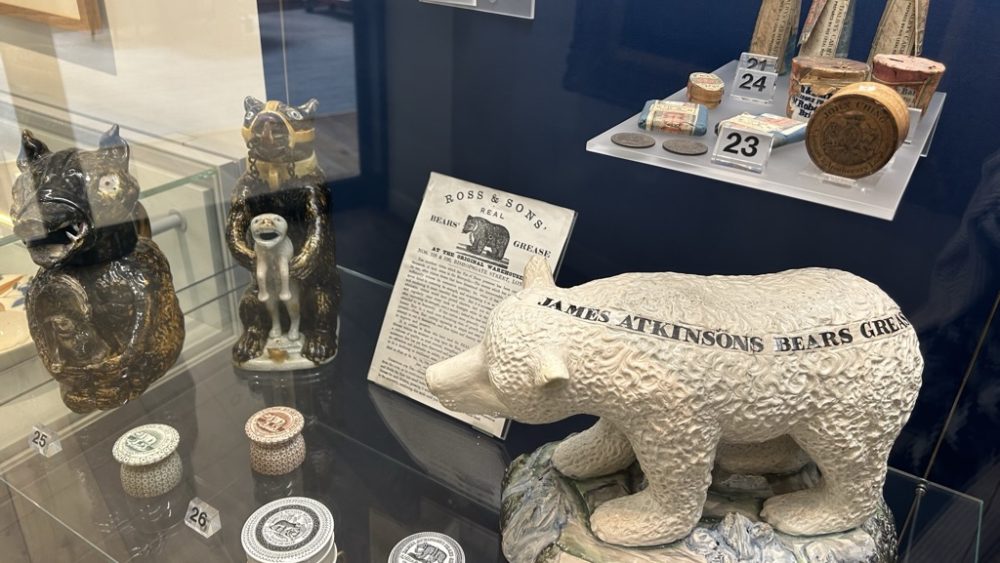
The ‘Meds on line’ project visited the Royal Pharmaceutical Museum in London in April 2023.
Who wants to use the grease from a bear to prevent hair loss? And who wants to bleach their skin and get a porcelain lustre using arsenic? The remedies during the decades are many. The museum is part of the Royal Pharmaceutical Society, the professional membership body for pharmacists and pharmacy. The Pharmaceutical Society of Great Britain was founded on 15 April 1841 by a group of leading chemists and druggists in London. The society’s mission is to put pharmacy at the forefront of healthcare and to become the world leader in the safe and effective use of medicines.
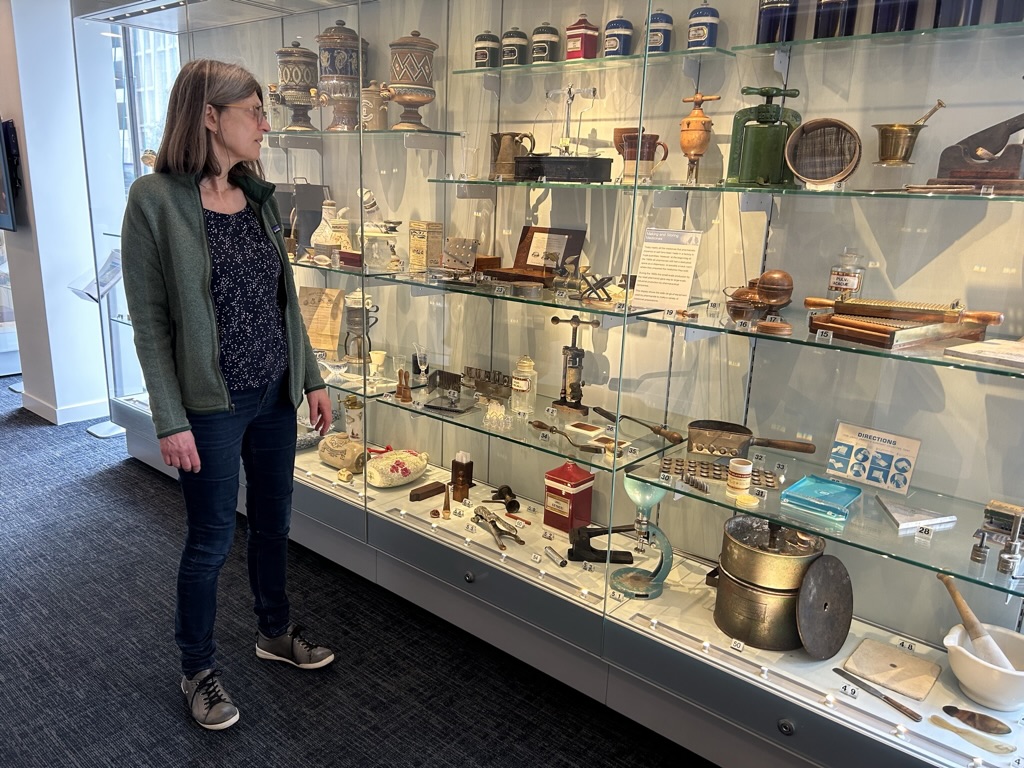
A plethora of alternative medicines and healing practices have been used as much in history as it is now. The museum is a goldmine for anyone who wants to take a look at the pharmaceutical sciences of the past and understand the developments of the present.
An award-winning book by Olof Sundin and Jutta Haider
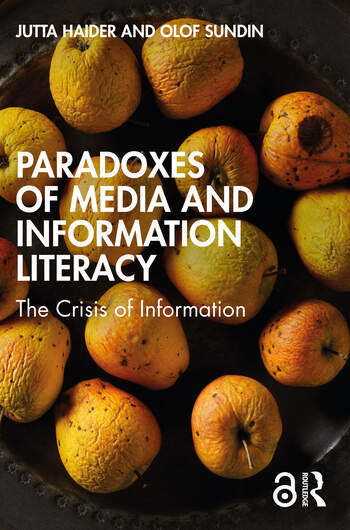
Olof Sundin has, together with Jutta Haider, been awarded “The Golden Magnifying Glass” school prize. The prize has been awarded since 2017 to individuals, initiatives or organisations that have made outstanding contributions to source criticism and critical thinking on the net. The prize is awarded by the Internet Foundation and Källkritikbyrån in connection with The day of source criticism, 13 March, every year.
“In their book Paradoxes of Media and Information Literacy: The Crisis of Information, they show how evaluation of online sources needs to be constantly renegotiated as part of media and information literacy in a digital information society. By raising a number of different dilemmas, they provide valuable insights for a forward-looking digital source criticism and strengthened digital literacy.”
An Open Access version of the book is available here.
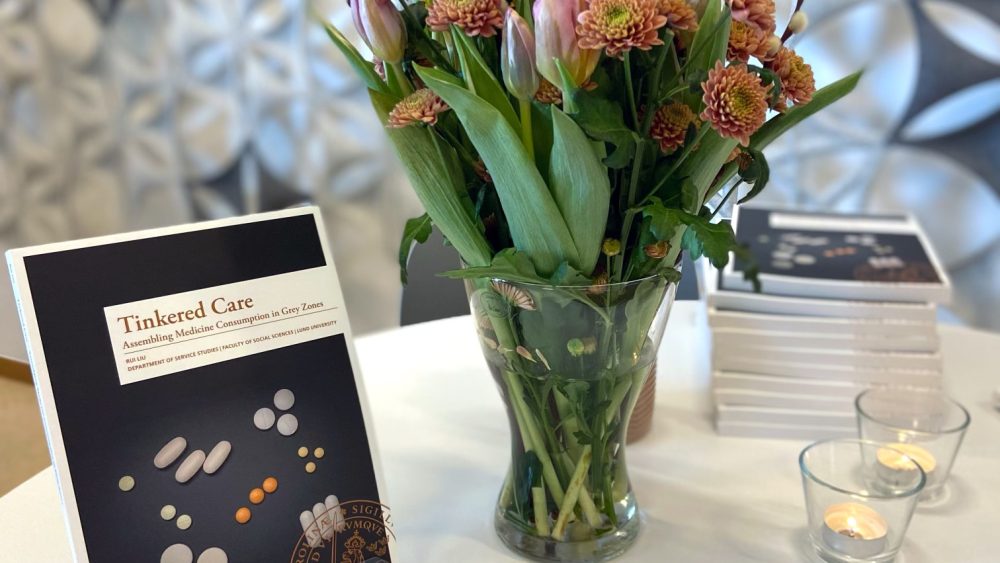
Rui Liu nailed her doctoral dissertation on 3rd March at Campus Helsingborg. Her dissertation, Tinkered Care – Assembling Medicine Consumption in Grey Zones, looks at the provision and experience of health services in relation to medicine access in the Swedish context. On 24th March Rui will defend her disputation.
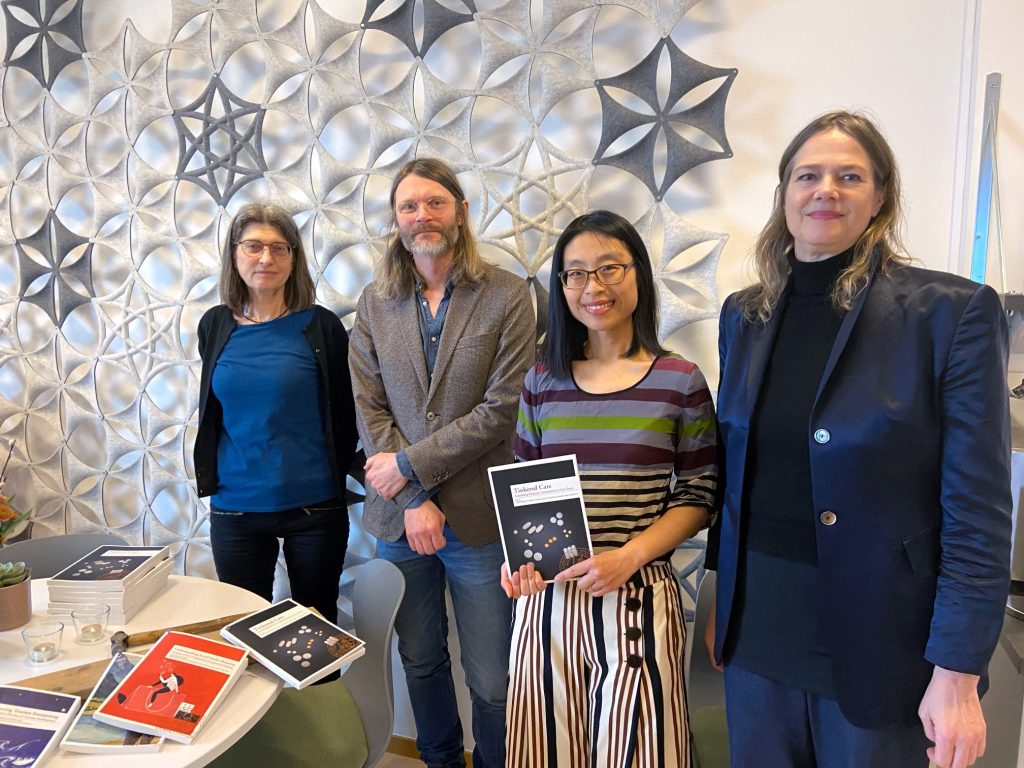
Olof Sundin in a panel discussion on knowledge climate changes
Science denial is a widespread phenomenon, not least when it comes to climate issues. Different groups question the role that scientific research and knowledge have in society and who are considered experts. More information can be found here.

Comments